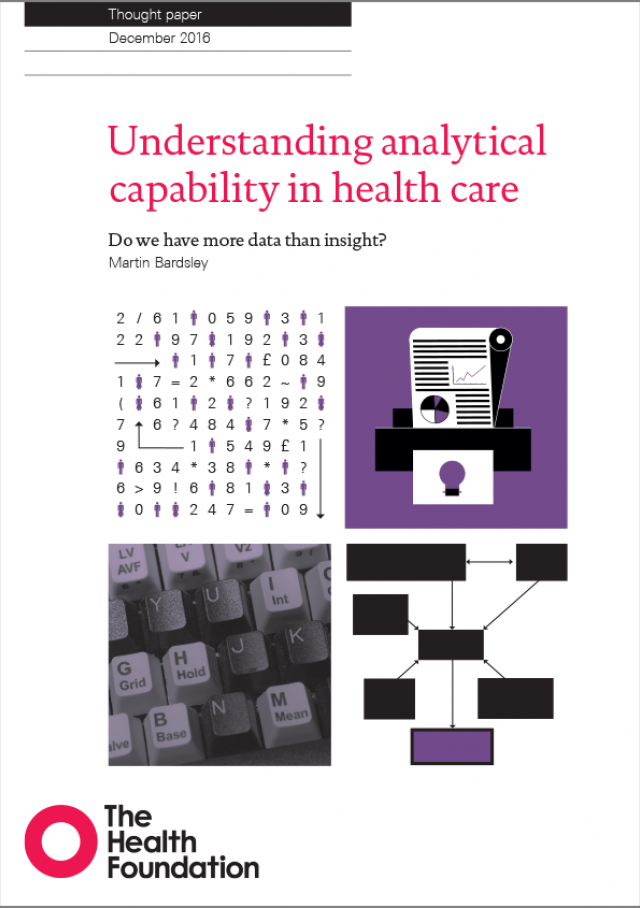Understanding analytical capability in health care Do we have more data than insight?
December 2016

Key points
- Analysis has a crucial role to play in shaping care for individual patients as well as across organisations and health systems. It also has a role in helping to improve quality and safety by identifying areas for improvement and monitoring service delivery.
- There is a widely acknowledged problem that health services often cannot access the right level of skilled analysts. This can lead to decisions being made on based on limited or inappropriate evidence.
- In this paper, Martin Bardsley explores issues around both supply and demand that need to be addressed to ensure good quality analysis is able to improve care.
A skilled workforce that is able to manipulate, analyse and interpret data is essential for a modern health care system. However, there is a widely acknowledged problem that health services often cannot access the right level of skilled analysts.
While this is partly a question of the number of analysts, it is also a problem that the health service is not making best use of the analysts it does have.
This paper is based on a series of discussions and interviews with analysts, academics, clinicians and managers. It is intended to outline the nature of the problems caused by limited analytical capability in health services in the UK and also looks at some different ways that these issues can be addressed.
Further reading
Work with us
We look for talented and passionate individuals as everyone at the Health Foundation has an important role to play.
View current vacanciesThe Q community
Q is an initiative connecting people with improvement expertise across the UK.
Find out more

